Posts by hollycave
Freelance travel writing as a career

A career in freelance travel writing might lead you into writing copy for travel-related websites, contributing to destination guides, producing features for magazines or newspapers, reviewing tourist attractions or hotels or even creating a whole book about your experiences. In short, it’s a career that’s as varied as you want to make it.
Most writers start by generating online content, as there is so much more demand. However, as you build up your portfolio over time, you may be able to move into the more lucrative print market.
But can you really make a career out of freelance travel writing, and what will it involve? Well, let’s see.
Going it alone
There’s no doubt about it, working as a freelancer in travel journalism can be as tough as it is rewarding. You’ll need confidence in your writing ability and plenty of perseverance to get through the first few months but, over time, you’ll build up a network of contacts and long-term sources of work that will make you feel more secure. If you have to pin motivational quotes above your desk then so be it!
A career break spent abroad or long term travel plans can be a great springboard into careers in travel writing. Doing it this way can feel much less scary than just quitting your job and starting to look for freelance work. You can spend time researching and writing articles while you travel, and start to build up a portfolio before you return – if you plan to come home, that is.
Finding freelance writing jobs
Your freelance travel writing career is what you choose to make of it. Spend time looking online to get an idea of all the types of jobs out there. Think about what you’d most like to do and where you’d really love to see your writing published. Your dream might be to get a full length feature on a subject of your choice published in Conde Nast Traveller, so keep that in the back of your mind as you go. You might not be able to achieve it straightaway but there’s no reason why you can’t make it happen. It’s important to be ambitious and have a goal in mind for your freelance travel writing.
Across all the different sorts of travel journalism, you’ll get to work with lots of different people including editors, other copywriters, public relations staff, as well as all the interesting people you’ll interview for your articles. You might even end up with your own literary agent and publisher.
Read more about the nuts and bolts of finding work in our other article, The five rules of finding travel writing jobs.
Choosing the right path
There is no set path into becoming a freelance travel writer. Some people work their way up in a magazine, others start their own travel blog and get scouted by a publisher and others publish articles in lots of different places throughout their careers. So the good news is that as long as you’re writing, you can’t really go wrong when it comes to career progression.
And there are anough challenges to keep you going over the years. Keep setting yourself ever-evolving goals and you’ll always be achieving new things.
Funding your next adventure
Aspiring travel writers often ask how much money they’re likely to earn. Unsurprisingly, the answer is that potential salary varies…
If you want a freelance travel writing career, we’ll hazard a guess that you’re probably more keen to see the world than living the good life at home. You might dream of spending years travelling through India, writing as you go, in which case you’ll hardly need any cash to live comfortably. If you plan to work from home however, you’ll have to think about how much you’ll need to pay your living costs and fund the lifestyle that makes you happy.
Careers in travel writing can certainly earn you a good living, and travel journalism can be quite lucrative, but it’s worth realising up front that it’s unlikely to buy you a luxury sports car or a countryside mansion.
You’ll have to set your own rates, usually by the hour or per word. Work out how much you can write in an hour – including research and editing time – and decide what you think would be a reasonable rate. If you’re just starting out, your fee will have to reflect your experience, but as time goes on and you win more work, you’ll be able to start charging more.
A little bit on the side
If you’re savvy, there can be perks. Many travel writers manage to get holidays, weekend breaks and meals out at some of the best restaurants for free in exchange for a bit of PR. If you’re clever, you can then make money on top by then selling articles about your experience. However, such work trips are relatively unusual these days and should not be your sole motivation for a career in freelance travel writing.
So, before you declare your passion for travel writing and throw in the towel at your existing job, think carefully about whether it will allow you to live the life you truly want.
Read MoreFinding freelance travel writer jobs: 5 rules

There are freelance travel writer jobs to be had out there, even if you’re just starting out. Follow our five simple rules to discover how to get writing jobs and you’ll be getting paid to travel the world before you know it!
-
Build your portfolio
To answer those ‘travel writer wanted!’ advertisements, you’ll need to be able to respond with some samples of your work – a portfolio. Potential employers and editors need to see that you can write well, understand a bit about your style and also see you as a professional.
If you haven’t yet been paid for any travel writing work, it doesn’t matter. Many writers are hired for freelance travel writer jobs on the basis of their personal blogs, internships or other unpaid work.
-
Network
Ever heard the saying ‘it’s not what you know, it’s who you know’? Well, this could never be more true than when seeking travel writing job opportunities. Luckily, networking doesn’t have to mean printing business cards and making awkward small talk at events and parties – you don’t even have to be a grade A charmer. We mean networking on the web.
To network successfully online, you’ll need a blog that shows off your best writing. It could include articles you’ve written for fun as well as paid work and photographs from your travels. While it needs to look professional, it should also reflect a bit of your personality. Once you’ve got your own catchy web address, get your blog and your writing out there. Make the most of Twitter, Facebook, LinkedIn, and link up with other travel blogs to get your work seen and appreciated. While none of these are freelance writer job sites, if you link up with the right people and groups, before long you’ll start getting travel writing job opportunities.
-
Start small
Let’s forget freelance travel writer jobs for a minute. Another form of networking – and a great way of building your professional portfolio at the same time – is by landing work experience placements or travel writing internships.
These aren’t necessarily easy to find, but you could start by searching the web and approaching various publications directly to enquire. You can find opportunities as well as other tips on sites such as The Travel Writing Portal.
-
Apply online
There are several good freelance websites that advertise travel writer job listings. Elance, PeoplePerHour and Freelancer are just three we recommend. With these sites, you set up your own profile and portfolio to apply for jobs. While it can be tricky at first to persuade potential employers to hire you, over time you’ll win jobs and start getting reviews and feedback that will boost your rating and make you more likely to succeed. What you charge is up to you and payment happens securely through the site direct to your bank or PayPal account.
-
Make a proposal
When you’ve got a good portfolio together of all your best articles, and you’ve had plenty of paid travel writing jobs, you should be feeling pretty confident. But don’t rest on your laurels, this is the time to start the toughest, but most lucrative, part of your journey.
Phone or email travel editors to find out whether they accept pitches and if they’re looking for anything in particular. Consider publications such as in-flight publications and supermarket magazines. If they ask you to send through your ideas just don’t give too much away so that an existing employee can write your article instead of you!
Make a note of how long you spend each day searching and applying for travel writing jobs. To begin with, this will be quite high but over time you should start to see the balance change and you’ll be working more than you are looking for work! If not, then go back through this article to figure out what’s going on.
So what’s stopping you? Get out there and start job-hunting!
How to become a great freelance travel writer

Can you write? We’re looking for a good, solid ‘yes!’ in response to that question because confidence is the first and most important thing you’ll need. However, every good writer can always improve and in the competitive field of travel journalism, you’ll need to take every opportunity to improve your skills and get ahead, whether it’s just reading a book or signing up for a travel writing class.
Learn from the best
There is a lot you can teach yourself before you pay out for travel writing courses or classes. Look online for great examples of travel writing and read them carefully. What is it about their writing that has won them a competition or got them published? How is it different to your writing?
You don’t have to change your style to imitate recognised writers, but understanding what makes others successful – such as a unique perspective or a descriptive way of writing – will help you up the game with your own work. Check out the winners of competitions such as the UK’s Daily Telegraph weekly Just Back competition, or the yearly Society of American Travel Writers awards.
Enroll in a course
To truly learn travel travel writing and make it your craft, you will probably need some professional guidance. Many professional travel writers enrolled on a travel writing class at the beginning of their careers – there’s certainly no shame in ‘going back to school’. If you like the feeling of learning in a classroom environment, then look for evening classes in your local area or research courses at your local colleges.
Many educational centres and companies offer travel writing classes via distance learning, so you can do all your reading and coursework in your own time, from the comfort of your own space.
Go on location
To really make the most of your love of travel and writing, why not join a travel writing class on location? Book a recommended one and you’ll find yourself being able to learn travel writing in a small group with some renowned experts in a beautiful place – perfect!
The organisation Travellers’ Tales regularly organises travel journalism courses abroad. Many courses also include photography as well as travel writing, so you could work on that side of your skill base as well.
Read up
There are plenty of good resources on the web for advice and ideas of how to build your career. Joining an online community is a good way of getting in touch with other budding travel writers. Try becoming a member of your favourite travel magazine or register with sites like The Travel Writer’s Life for insider tips and networking.
But while the web is bursting with information to help you, there’s also lots of confused, non-expert opinions getting in the way. In short, it can be hard to find genuinely useful information. That’s why is well worth investing in a couple of books, complied by experts, that will guide you through the process of becoming a freelance travel writer. They’ll offer, tips, great resources and practical advice whether you are a complete newbie or trying to advance your existing career. Check out the Lonely Planet’s Guide to Travel Writing or Travel Writing 2.0 by Tim Leffel. Both are recommended as comprehensive resources from people at the top of their game.
Throw yourself into learning the art of travel writing and you’ll be all the better for it. Just remember to enjoy the journey!
Read MoreThe freelance travel writer lifestyle

Freelance travel writing is, without doubt, the dream job. You get to explore the world, describe new experiences and spend time writing, all in the hours that suit you. But like any occupation, while it’s very rewarding, it can come with a few challenges. So if you’re considering travel journalism as a career, have a think about the kind of lifestyle it entails to decide if it’s definitely the thing for you.
The travel writing rollercoaster
There’s no denying that being a freelance travel writer can lead to some thrilling – and occasionally all-expenses-paid – adventures. Even interns sometimes get free trips to exotic destinations. You’ll have to write about them of course, you can’t sunbathe the whole time! Some writers can find themselves in tricky situations, for example deciding to review a hotel or location that wasn’t quite up to scratch.
And while there’s plenty of excitement in the freelance travel writer lifestyle, much travel journalism can be a little on the mundane side. You’ll find yourself taking commissions to write about the different types of cabin on a cruise ship, or tips on how to book tickets for musical performances. If this still inspires you to pick up your pen, then you might just be cut out for this career!
Timing it right
Ask any freelancer travel writer what they love most about their way of life and they will say the flexibility to work when they want. There’s nothing like choosing hours to suit you; taking a long lunch break or working on a Sunday so you can visit friends mid-week, or adjusting your working hours to look after your family.
However, to achieve this fine balance, you will need to be motivated. When you work for yourself, you will need to make yourself sit down at the desk and get on with things without a nudge from anyone. Some people can find this difficult. You’ll need to be very organised, keeping accounts for tax purposes, generating and chasing invoices, and managing your time efficiently. If you don’t know how to do this already, after a few months of being a freelancer there’ll be no stopping you!
From solitary travels to a people jungle
Writers tend to be introverts by nature. We like to wander alone, musing over our thoughts and spending time in our own private space, writing down our ideas. There’s no doubt that the freelance travel writer lifestyle can be solitary at times. Even if you have a partner or a family, you’ll sometimes have to travel alone for a commission and you’ll get used to spending time away from home in order to do your research and writing on location.
This can be hard for everyone, including natural introverts, so you and your loved ones will need to find ways of staying in touch and managing in your absence. Luckily, access to the internet is prevalent in all but the most remote locations. If you haven’t discovered it yet, sign up to Skype for free or low-cost video calling.
On the other hand, freelance writers will be faced with lots of different people in their day-to-day working lives and you’ll need a charming side to manage everyone’s (often conflicting!) expectations. You will have to deal with pushy editors changing your copy and public relations staff wanting you to write about particularly boring things. But for a lot of freelance travel writers, this is all part of the fun!
Despite all the pros and cons, there is no denying that a freelance career can be extremely satisfying, and as challenging as you want to make it. The world’s your oyster, so give it a go!
Read MoreWriting on the road: 10 things I couldn’t live without
Any traveller has a booty of items that they always find room for in their backpack. As a travel writer, the most important items in my travel kit are the tools and gadgets that help me do what I do: write. Here are the ten things you’ll spot if you rummage through my luggage.
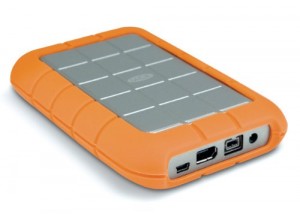 LaCie Rugged 500GB All-Terrain Hard Disk
LaCie Rugged 500GB All-Terrain Hard Disk
The three golden rules of travel writing? Back up, back up, back up. I’ve lost work before and nothing feels worse. You’ll need to keep all your documents saved in more than one place, especially if you’re carrying around a laptop or netbook desirable to thieves. I’ve been using this LaCie external hard drive for the last couple of years, keeping it separate from my laptop at all times to minimise the chances of losing all my work in one fell swoop. This model is fantastically practical thanks to its thick rubber edging, and can even survive a drop down a canyon (it was a small canyon, but a canyon nonetheless!) – so there’s no doubt it’ll withstand the beating that it suffers in my backpack.
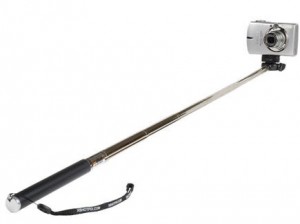 Xshot Extender 2.0
Xshot Extender 2.0
I lugged a tripod around India with me for two months before handing it over to another friendly traveler in a hostel. I simply didn’t use it and although it folded up pretty small, when I’m out exploring for the day, it’s just another piece of kit in my day bag. However, my boyfriend found this neat camera extender with which you can you can take great snaps of yourself without the need to fiddle around with timers or find a suitable ledge to rest your camera on. We got some great pictures of us nicely framed in front of famous sights such as the Angkor Wat temples. And at half a kilo it won’t weigh you down.
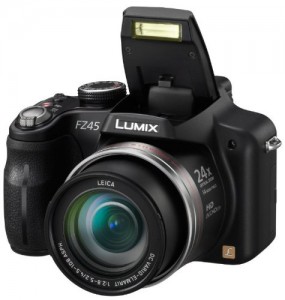 Panasonic Lumix FZ45 digital camera
Panasonic Lumix FZ45 digital camera
I’m a writer, not a photographer. But when I travel, I’m constantly taking pictures of my adventures, and as a writer I’m responsible for getting the best shots possible to help illustrate my articles. I did a lot of research before deciding to buy this SLR and I’ve loved every minute we’ve spent together. It’s not too pricey, not too big, it’s simple to use and there are still loads of settings I haven’t fully utilised. Plus, it captures great photos without needing to edit them afterwards. I love the HD movie recording – useful for taking short videos of performances and conducting interviews with locals – and the fact that its battery lasts a week-long trek without a recharge.
 Kindle Keyboard 3G
Kindle Keyboard 3G
This piece of kit hardly needs an intro. At first, I just kept novels on my Kindle to browse on boring journeys. Now I get all my travel guides loaded up on here before I set off – much lighter than carrying around loads of books and easily searchable, too. I even put PDFs of my draft articles on here to read through, edit and show to others. I’ve got the keyboard version, which although slightly bigger, is much handier for adding notes to your literature – good for quick reference when you’re in the back of a tuktuk trying to figure out where you’re supposed to be going!
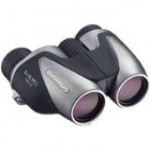 Design Go Lightweight Binoculars
Design Go Lightweight Binoculars
I wasn’t bothered about these when a friend proudly handed them to me before I headed off on my first round-the-world trip, and you could hardly say that binoculars are vital for a travel writer. But it was worth carrying them around for five months because without these hanging around my neck, I would never have seen a jaguar in Brazil’s Pantanal. Now I’m writing this experience up into an article. Affordable and lightweight, it’s definitely worth adding these to your backpack – you might just spot something no one else does – and that always makes for a great story.
 Apple 11-inch MacBook Air
Apple 11-inch MacBook Air
For me, a great laptop is all about battery life. After I’ve watched a film on a long bus journey and uploaded the day’s photos, I still want to be able to write notes from the day and edit my blog. For days at a time in South America, I was racing through Bolivia to Brazil and taking buses instead of staying in hostels for the night. Few would argue that Apple products offer the best battery life and my beloved MacBook Air consistently delivers the promised 5 to 6 hours between charges – a boredom fighter and fantastic work aid.
 Moleskine Notebook
Moleskine Notebook
I’m an old-fashioned girl at heart, and there’s something romantic about jotting down notes on the crisp pages of a Moleskine that makes me feel forever on the trail of Hemingway. Plus, the smart black leather cover also does well at reminding me to get on with work rather than play!
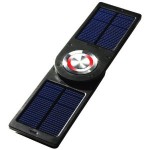 Freeloader Pro Solar Charger
Freeloader Pro Solar Charger
This is another little gadget that I don’t use regularly, but it did come in pretty useful when I was driving and camping around New Zealand. Trying as I was to avoid pricey campsites with such luxury facilities as power sockets, this little beauty helped me keep my phone and camera charged each day by collecting the sun’s rays through the windscreen as I drove along.
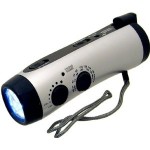 Kaito Hand Crank LED Flashlight
Kaito Hand Crank LED Flashlight
When I’m camping out in the woods or spending the night in a town without electricity, this little flashlight casts the perfect amount of light to write notes by at night. I’m now on my second one, having left the first one with a family in the mountains of Northern Laos. Once I realised they had to do a day’s walk to the nearest town to buy batteries, I understood why they found this gadget so magical.
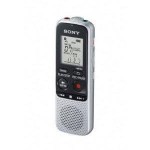 Sony ICD-BX112 Digital Voice Recorder
Sony ICD-BX112 Digital Voice Recorder
I adore this piece of kit. When you’re horse riding through the fields of Uruguay, or atop a camel in the African desert, a million thoughts are racing through your head and you can’t put them on paper until the experience is over. I like to clip this onto my shirt and describe what I see and how I feel so that later I can listen to the recording and jot down notes.

